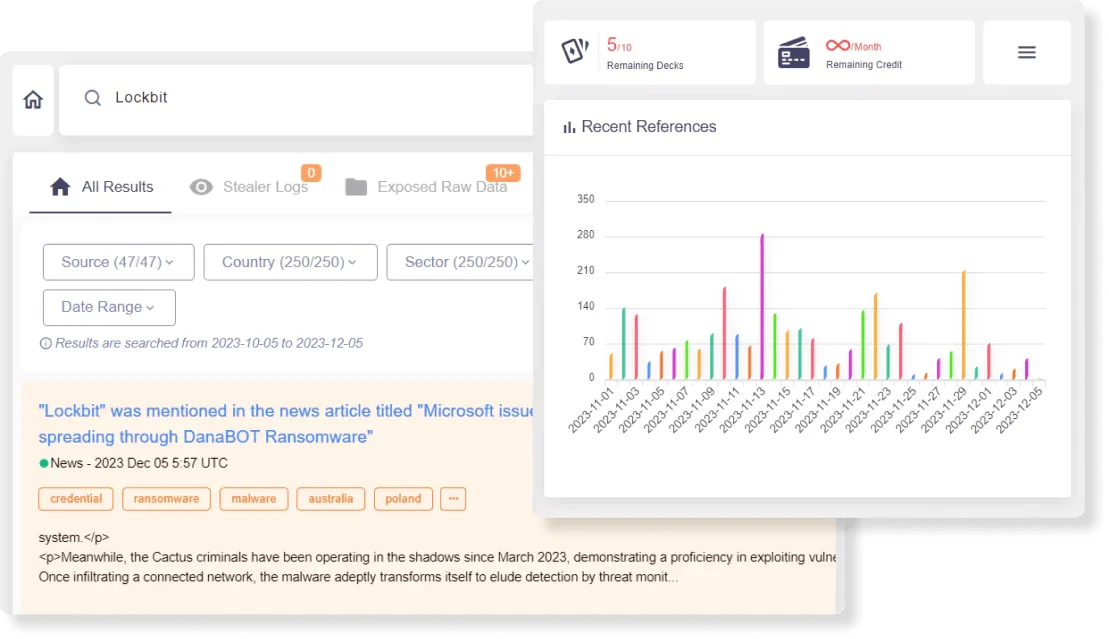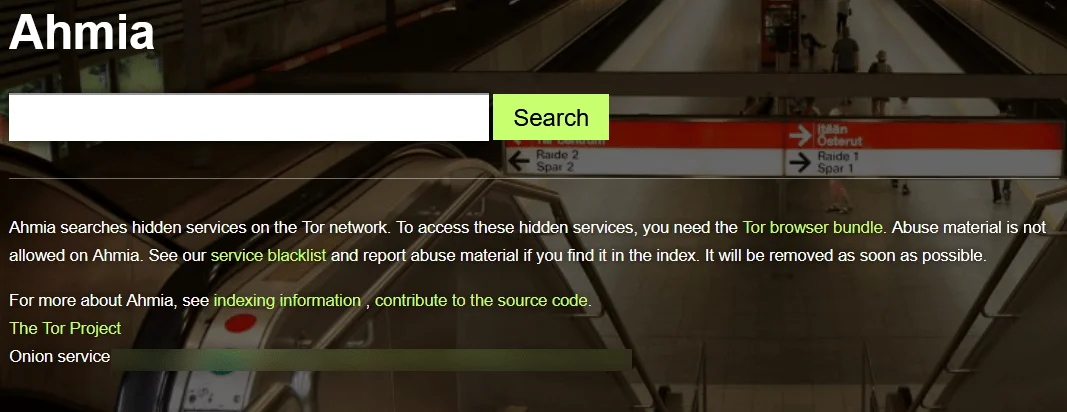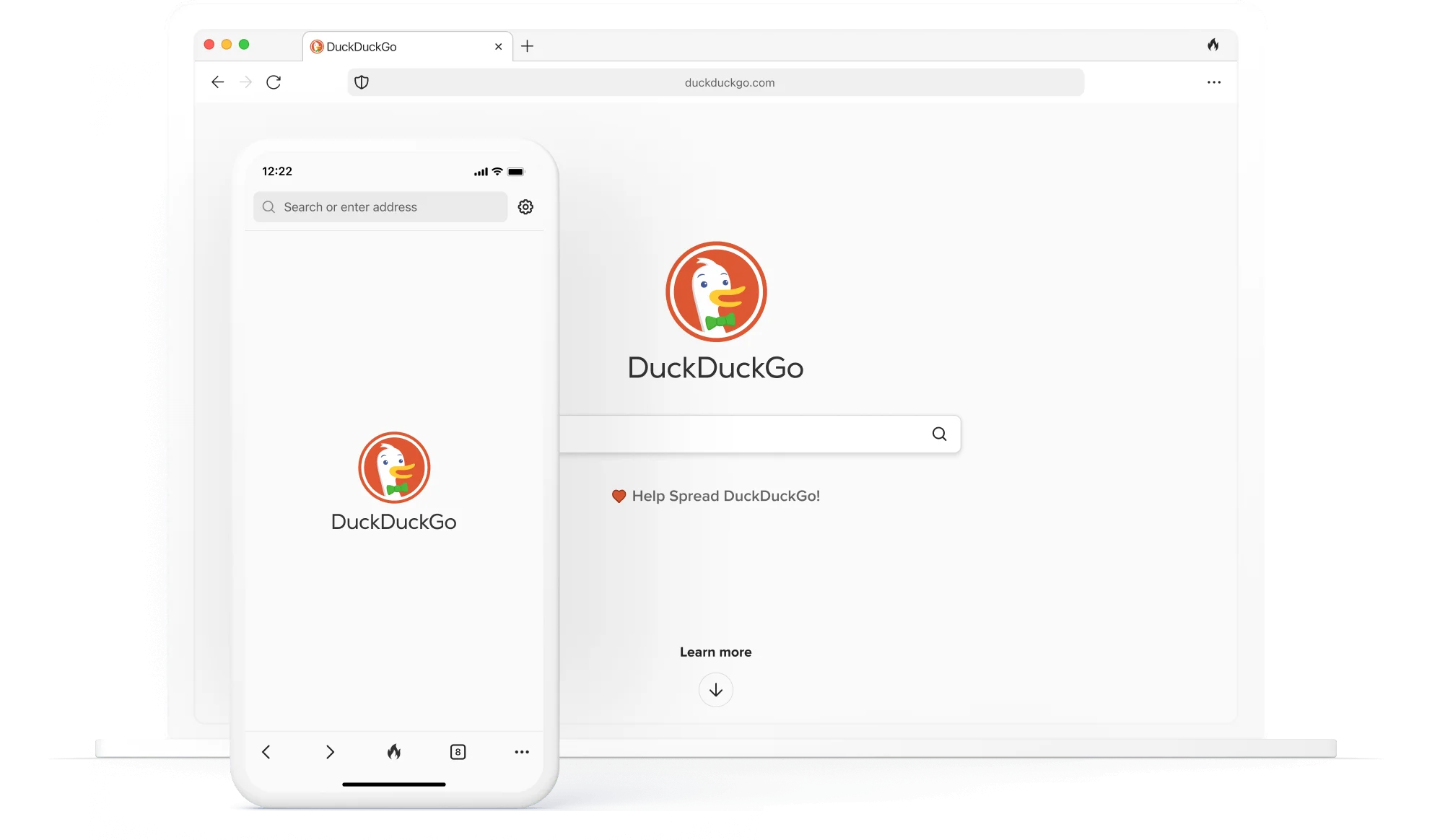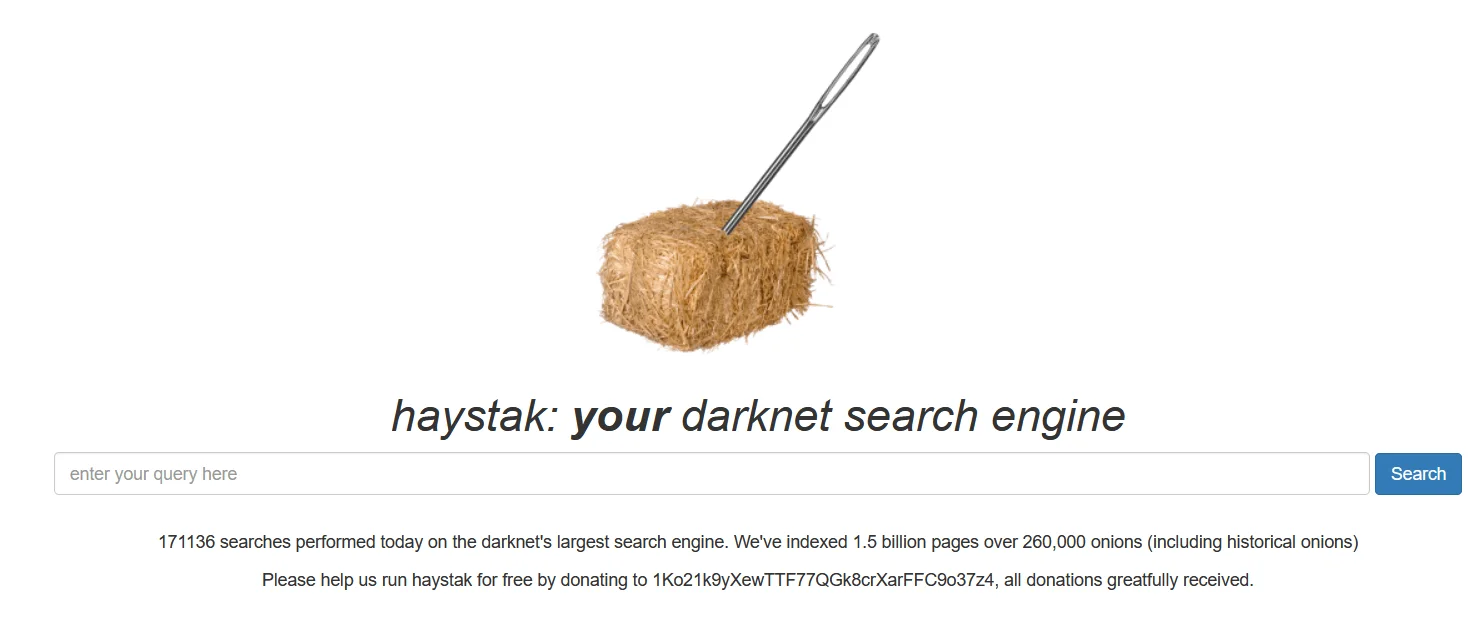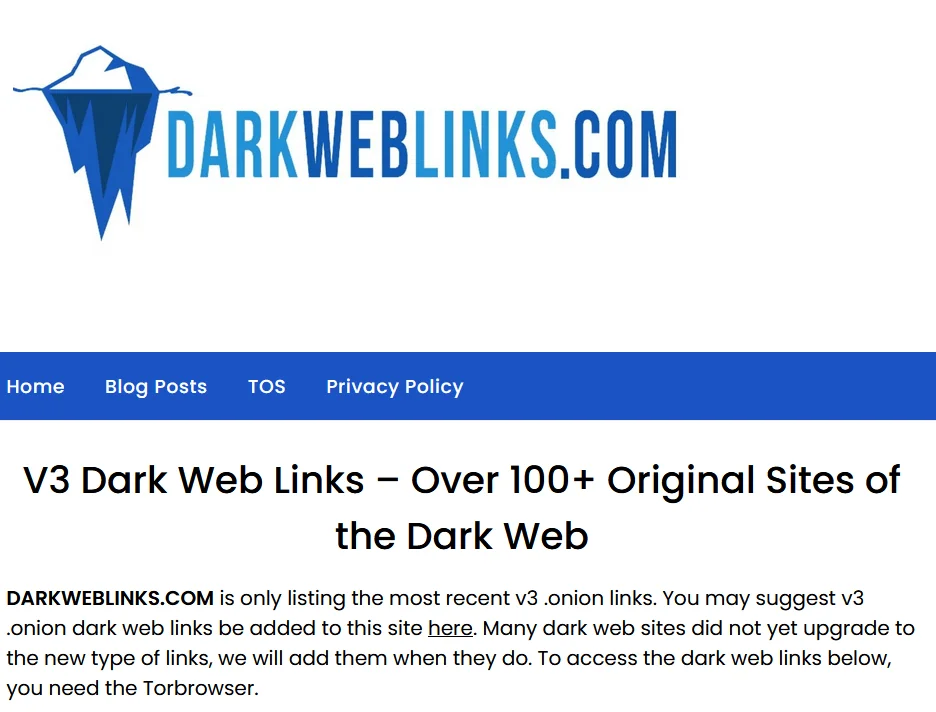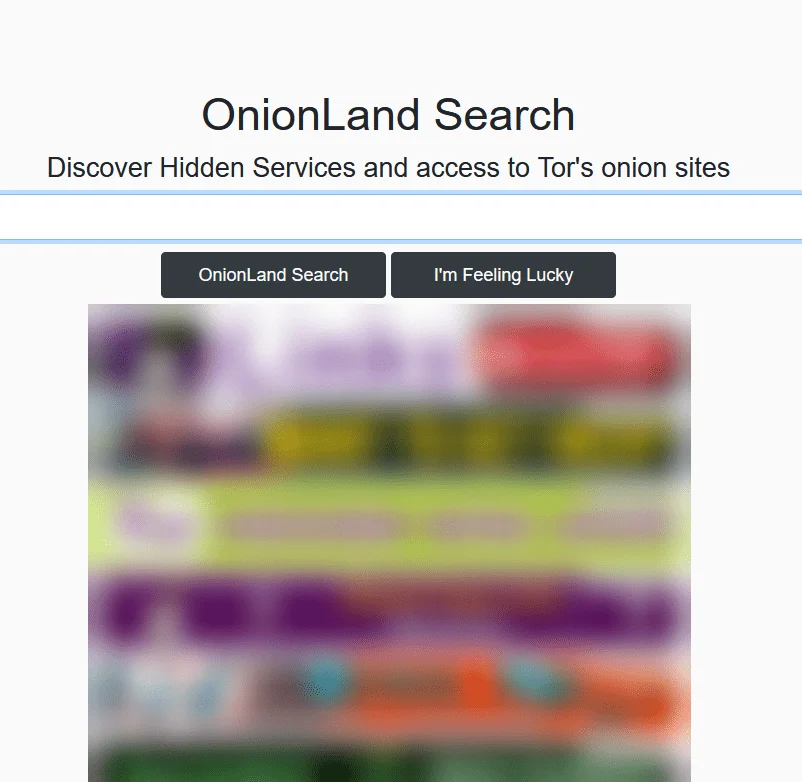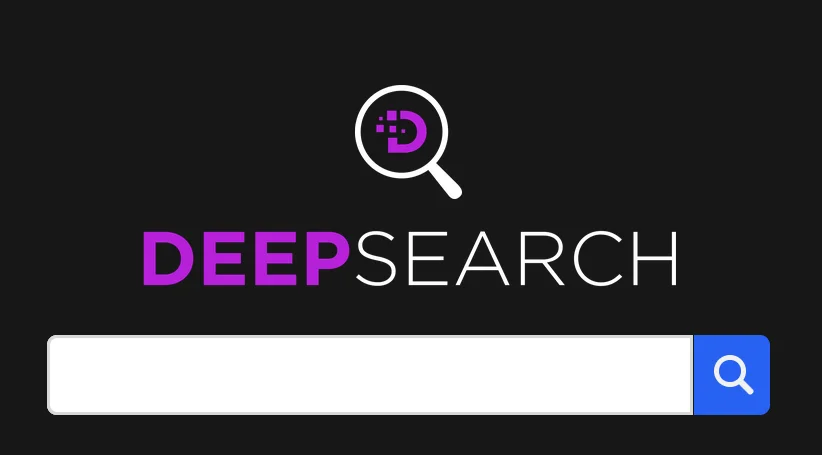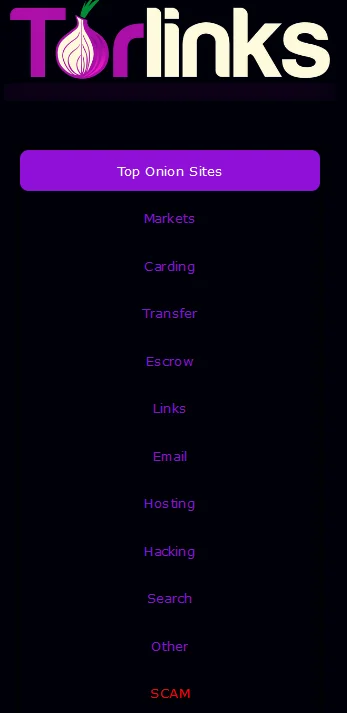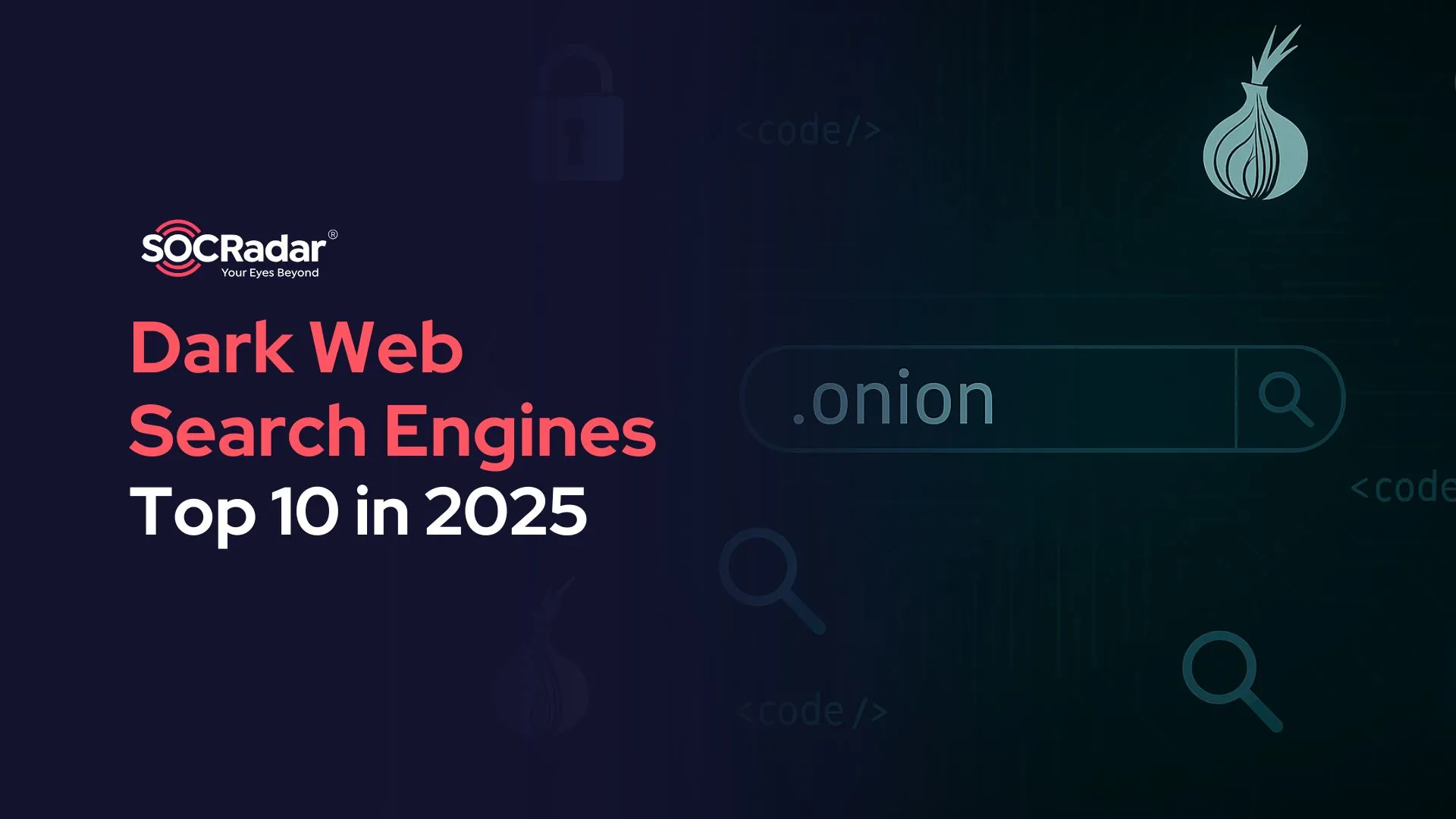
Top 10 Dark Web Search Engines in 2025
A lot has changed since we last covered the top 5 Dark Web search engines. Some search engines are still around, while others have shut down or become unreliable. Meanwhile, new options have emerged, trying to fill the gaps left behind.
With the dark web constantly shifting—due to takedowns, stricter regulations, and evolving threats—it’s time for an update. This time, we’re expanding the list to 10 Dark Web search engines that stand out in 2025. Whether you’re a researcher, journalist, or just curious, this list will help you understand what’s still working and what’s new in the world of dark web search.
1. SOCRadar’s Dark Web Search Engine
Unlike traditional dark web search engines that passively index onion sites, SOCRadar’s Dark Web Search Engine takes a more proactive approach. Rather than simply mirroring the structure of conventional search engines, it is designed as a specialized cybersecurity tool, enabling organizations to track threats, monitor cybercriminal activities, and respond to potential risks in real time.
What sets SOCRadar apart is its targeted search capabilities. Instead of sifting through random dark web pages, users can efficiently search for specific keywords, IP addresses, emails, domains, hashes, and URLs, making it a powerful asset for threat intelligence teams, security researchers, and analysts. Additionally, its curated dark web news feeds provide industry and region-specific insights, ensuring that users receive timely updates on emerging threats.
While it does not function like a traditional dark web search engine, its place on this list due to its unique ability to turn dark web intelligence into actionable insights. By focusing on real-time threat detection rather than static indexing, it provides a more strategic and security-driven approach to dark web monitoring.
2. Torch
Torch is one of the oldest and most established dark web search engines, known for its extensive indexing of onion sites. Unlike many other search engines that come and go, Torch has remained active for years, making it a reliable option for exploring hidden parts of the internet. It provides access to a wide range of content, from forums and marketplaces to various other dark web pages.
While Torch is useful for deep searches, it is also known for its heavy use of ads, which can sometimes be intrusive or misleading. Despite this, it remains a widely used tool for those looking to navigate the dark web efficiently.
It’s important to remain cautious, as Torch—like many other dark web search engines—does not filter websites. This increases the risk of coming across malicious pages or harmful content while browsing.
3. Ahmia
Ahmia, which gained support from the TOR Project in 2014, is renowned for its top-tier filters that make it stand out among other dark web search engines. Its primary goal is to ensure that the search results originating from the TOR network are thoroughly cleansed of fake or unsafe websites, reducing the risk of encountering malware or other malicious content. This focus on safety and reliability allows users to explore the dark web with more peace of mind.
What truly sets Ahmia apart is its strict policy against “abuse material,” aiming to block harmful content like illegal materials from appearing in search results. This commitment to cleaner, safer content is a defining feature of the search engine, making it an essential tool for anyone looking to navigate the dark web securely. Additionally, Ahmia offers both a clear web URL and an onion link, ensuring a safe connection regardless of how users choose to access it.
4. DuckDuckGo
While DuckDuckGo is primarily known for its privacy-focused search engine on the surface web, it also offers a unique entry point to the dark web. DuckDuckGo allows users to search .onion sites directly without requiring any additional software or tools, making it accessible to those who may not be familiar with more traditional dark web search engines.
The major appeal of DuckDuckGo is its commitment to user privacy. It doesn’t track search history or personalize results based on user data, making it a preferred option for those who value anonymity and security. When it comes to dark web searches, DuckDuckGo acts as a convenient way to browse onion sites without exposing personal information or leaving a digital footprint.
While DuckDuckGo doesn’t offer advanced filtering or dark web-specific features like some dedicated dark web engines, its simplicity and privacy make it a solid choice for users who are looking for basic dark web searches without the complexity of specialized tools. However, it’s worth noting that DuckDuckGo lacks the deep web filtering and safety measures offered by more dedicated dark web engines, so users should remain cautious when navigating through its search results.
5. Haystak
Haystak provides advanced filtering options, allowing users to narrow down search results to find exactly what they’re looking for. This can be particularly useful for those in cybersecurity or research fields who need to find specific types of content quickly.
One notable aspect of Haystak is its premium version, which offers even more robust features, including enhanced search capabilities and access to deeper, more exclusive parts of the dark web. While the free version is solid for general searches, the premium version can offer a more refined, expansive experience for power users.
Despite its capabilities, Haystak does not filter out harmful content, which means users must remain cautious when navigating through search results. While it’s a valuable tool for deep web exploration, users should take care when interacting with unfamiliar or potentially unsafe sites.
6. DarkWebLinks
DarkWebLinks focuses on listing only the most recent v3 .onion links, ensuring users access updated and secure dark web sites. As many dark web sites have yet to transition to the newer v3 format, the site will add these once they do.
Much like The Hidden Wiki, which has served as a guide to dark web resources, DarkWebLinks organizes trusted .onion sites into categories, offering users a more structured approach to browsing the dark web. It helps users avoid the dangers of unreliable content while simplifying the search for useful sites.
For anyone seeking a safer and more reliable way to explore the dark web, DarkWebLinks offers a valuable resource, ensuring that users can easily find reputable websites, all accessible through the Tor browser.
7. OnionLand Search
OnionLand features a clean, intuitive design and offers search suggestions to streamline the dark web browsing experience. It indexes both old V2 onion addresses and I2P content, and it allows users to search across both the clearnet and dark web by using multiple indices. This flexibility lets you filter searches to focus exclusively on the dark web or include results from both realms.
However, users should be cautious as OnionLand may require JavaScript activation, which can compromise full privacy. While it’s an efficient and user-friendly tool, always be mindful of the privacy risks when using dark web search engines.
8. VormWeb
WormWeb is a straightforward dark web search engine designed to offer quick and easy access to .onion sites. Known for its simple interface, WormWeb makes dark web exploration more accessible to users who are looking for a more user-friendly experience.
WormWeb’s focus is on reliable results, helping users avoid unnecessary risks when searching the dark web. Although it doesn’t have the same extensive features or categorization as some larger search engines, its simplicity make it a solid choice for those looking to find what they need without navigating a cluttered or overly complex interface.
However, WormWeb primarily supports English and German searches, which could be a limitation.
9. DeepSearch
DeepSearch is an open-source dark web search engine built specifically to explore the onion space within the Tor network. Known for its accuracy, it stands out by delivering precise and useful results, making it a reliable tool for those navigating the dark web. Unlike many other platforms, DeepSearch avoids the spammy links that can clutter search results, providing a more refined experience for users.
With its focus on quality over quantity, DeepSearch is an excellent choice for anyone looking to perform targeted searches on the dark web without the distraction of irrelevant content.
10. Torlinks
Torlinks is a dark web directory that serves as a comprehensive index of .onion sites. It provides users with an organized, easy-to-navigate list of various hidden services across different categories, such as forums, marketplaces, and information sites. The goal of Torlinks is to simplify the search process on the dark web by offering a more structured and accessible directory.
One of the notable features of Torlinks is its scam list, which highlights potentially fraudulent websites that have been reported by users. This list serves as a valuable resource for individuals looking to avoid malicious sites while navigating the dark web. However, as with any dark web directory, users should still exercise caution and verify sources before engaging with unfamiliar sites.
Conclusion
As we’ve seen in the evolving landscape of dark web search engines, each tool offers unique features tailored to various needs. From security-driven engines like SOCRadar’s Dark Web Search Engine, designed for real-time threat intelligence, to more user-friendly platforms like Torlinks, there’s no shortage of options to navigate the hidden web. However, it’s crucial to remain vigilant. Despite the benefits these search engines offer, the dark web remains a high-risk space, often teeming with malicious content and scams.
To stay safe and protect your data, always exercise caution and verify sources when engaging with unfamiliar sites. For businesses and security professionals, tools like SOCRadar’s Advanced Dark Web Monitoring provide proactive measures to stay ahead of emerging threats. Remember, the dark web can be a dangerous place, so ensuring a safe browsing experience is essential for protecting yourself and your organization.




























